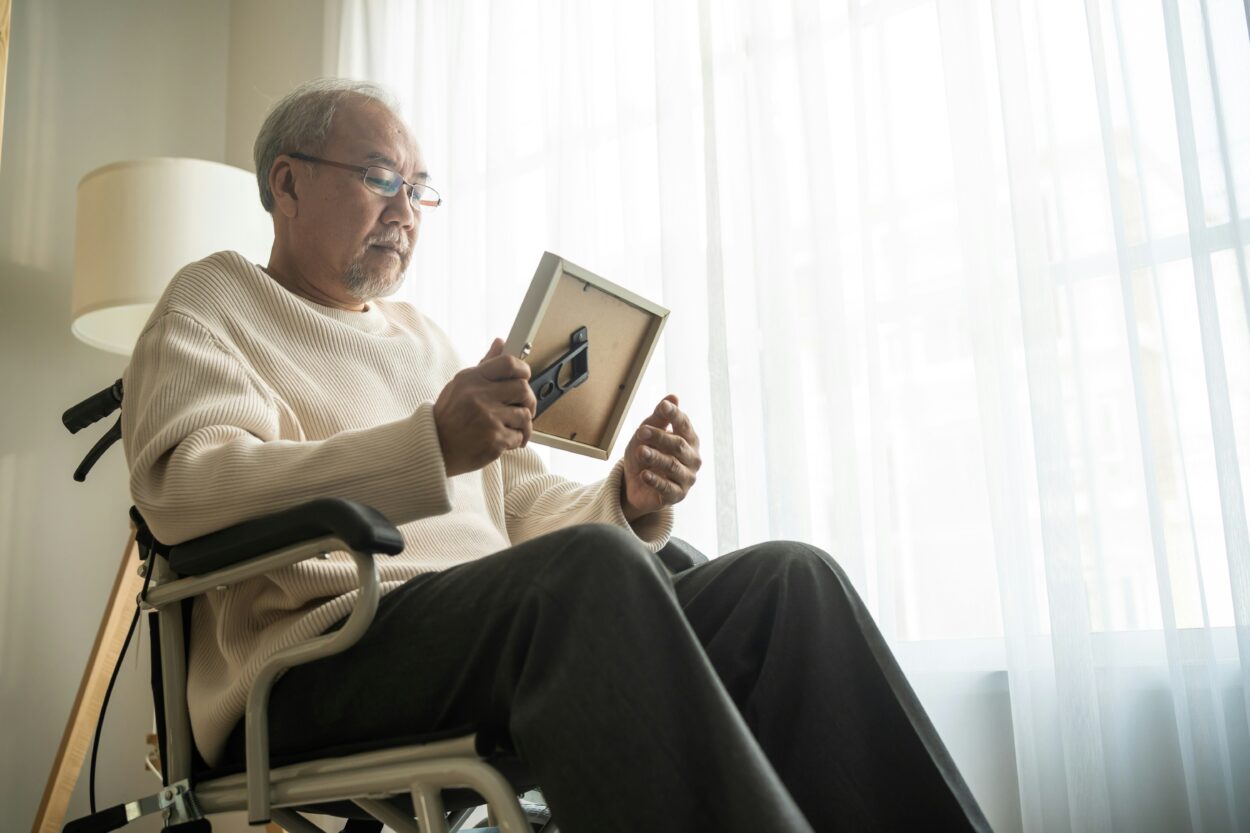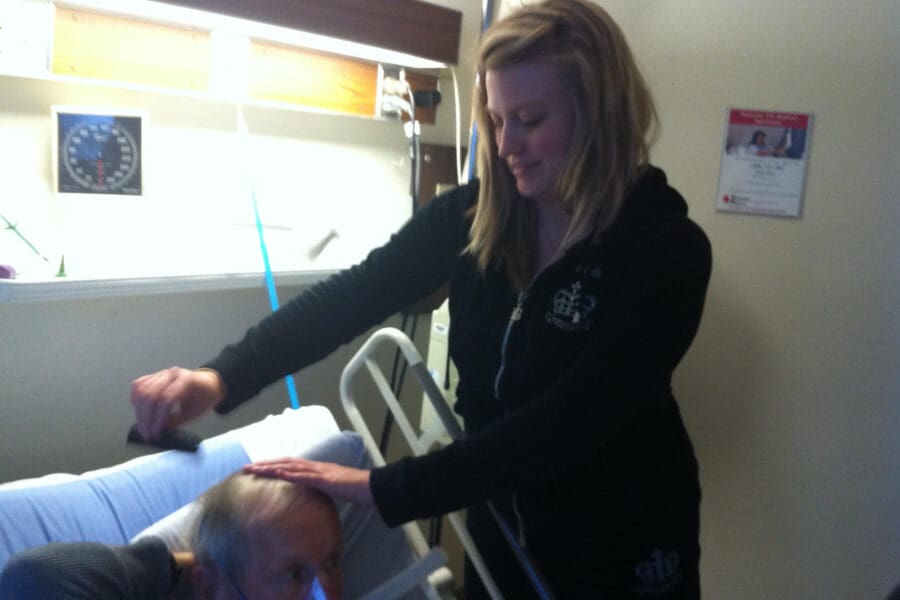From an outsider’s perception, situations involving grief and loss may look similar but that’s rarely the case for those experiencing the loss of a loved one. Grief comes in all shapes and sizes and though two friends, for example, may have both lost parents to cancer, the reality is that their grief and subsequent grieving journeys are different. It’s because of this that comparing our grief stages with another’s isn’t just futile, but also dangerous.
Why Do We Compare Grief?
Before we dive into why we cannot compare grief, we should first acknowledge why we do so in the first place.
One reason we compare our stages of grief to others centers around a psychological phenomenon known as the Social Comparison Theory. Coined by Leon Festinger in 1954, Social Comparison is a relatively straightforward concept in which someone bases their opinion of themselves on how they compare to someone else.
Social media has made comparisons like these easier, as people we know and strangers we follow, may routinely share stories about their losses and grieving process.
Even if they are not explicitly talking about it, seeing someone smiling or having fun in photos a few weeks after they posted about their loved one’s passing can make those in the thick of the grieving process feel like there’s something wrong with them if they are struggling to feel happy. In other words, they begin questioning what’s wrong with them that they have not “moved on” yet, especially the longer their grief drags on.
This concept isn’t just apparent through grief, as social media is known to paint an inaccurate picture in many categories, but that doesn’t mean it doesn’t cause damage.
The Heircharcy of Grief
Piggybacking off Festinger’s theory is the Heircharcy of Grief, which, in simple terms, is what happens when we start comparing our grief to others. Based on this hierarchy, society has essentially built a list that ranks familial losses. At the top is the loss of a child, followed by the loss of a spouse, then parents and siblings, with grandparents, friends, and extended relatives being at the bottom.
Looking at this list, it’s easy to understand why it’s ranked the way it is. The loss of a child is devastating, while the loss of a spouse or long-term partner can upend your daily life in every way, quickly forcing you into a new normal.
While this ranking is understandable, it creates issues for those experiencing any of these losses because those on the lower end who are grappling with the loss of a grandfather may feel like their loss is not as significant or worth talking about compared to their friend who lost a husband. Likewise, the friend who lost a husband may not feel like the loss of an elderly grandparent who got to live to a ripe old age is as life-shattering as theirs or even deserves the same attention.
Having lost both of my parents, I’ve struggled with this, as have friends of mine who have said that they didn’t feel comfortable venting to me about their “minor” loss when I’ve suffered one that’s considered “major.” The cycle goes round and round.
The reality, though, is that the severity of grief isn’t actually defined by this hierarchy but rather by three distinct factors.
Factors That Affect How We Grieve
Many factors affect how we grieve. However, it usually comes down to three main ones, which include the relationship we shared with the person, how they passed away, and the support system we have to help us move through the grief.
Here’s a helpful overview of each of these:
The Relationship Shared
First and foremost, the biggest factor to consider in any of the grief stages is the relationship shared between the griever and the person who passed away. While it’s easy to claim that those who shared the closest bond are affected the hardest by grief, that may not always be true.
Sometimes, individuals may feel incredible bouts of shame and guilt if they and the person who passed had a fraught relationship, or were in the middle of an argument. On the flip side, those with fraught relationships may be incredibly angry that they never had a chance to get an apology from their loved one and now have lost their chance.
The relationship dynamic that existed in life quickly comes to an end when one person dies and regardless of whether that relationship was good or bad, it can leave many things unopened for the person left behind to now navigate.
From the outside looking in, it’s easy for someone who shared a close bond with their mother, for example, to be angry that their friend or spouse is grieving the loss of a person they rarely spoke to. However, it’s that reality of how much was left unsaid that is usually the very thing bothering them.
How They Passed
Another factor that can affect someone’s grieving process is how they passed. Unfortunately, even when it’s expected, the loss of a loved one is always a traumatic event. Maybe the griever never got a chance to say goodbye because the death was so sudden, or they got to the hospital two minutes too late, leaving their final words unsaid.
In some cases, such as those who were dealing with an extended illness, those left behind may feel a sense of relief that their loved one is no longer suffering, and by proxy, that their worry about when they were going to pass away is now a thing of the past.
Likewise, maybe the griever was heavily reliant on the one who passed, which thrusts them into a new normal with perhaps a new caretaker. The bottom line is that there are so many variables at play.
Our Support System
Last but not least, the biggest factor that affects the grieving process comes down to the type of support system you have.
If you were the first one in your group to lose a parent or a spouse, then it may be difficult for your friends to understand your point of view, or they may expect you to bounce back or be the person you were before the loss.
On the other hand, sometimes grief is too difficult for your loved ones and close friends to manage, so they may try to offer up platitudes because talking about grief is too uncomfortable for them.
This isn’t to say that you will only encounter these types of support systems. It may be just the opposite where you are in a supportive environment that allows you to share your emotions freely.
Even if you encounter the former, there are always grief-based support groups and therapy that can offer a kind, comforting hand as you navigate your grief journey.
Why These Factors Matter When It Comes to Comparing Our Grief and Loss to Others
In regards to why these factors matter when it comes to comparing our grief, it’s because they present a variety of different emotions and experiences, both of which are going to vary from person to person. It’s for this exact reason that we cannot compare our grief to others.
Someone who lost a loved one to a six-year battle with cancer may feel relieved that they no longer have to worry about when the other shoe is going to drop, while also trying to navigate their new identity now that their caretaking role is over.
Another person may be young and in their twenties, devastated by the loss of their parent, especially if they don’t have a family of their own yet. The loss may have blindsided someone else and they are now struggling with immense fear anytime their loved one leaves the house for fear that something bad will happen because of how traumatic the initial loss was.
The reality is that, whether you’re talking to someone else about their grief or simply seeing it on social media, most people don’t detail everything they’re struggling with because it makes them uncomfortable – but that doesn’t mean they’re not facing some pretty steep hills.
Loss affects everyone differently, but the shared commonality between them is that the feelings of grief are universal. Grief changes you, and how someone chooses to navigate that new normal is the result of them deciding it’s what works best for them at this moment. Comparing yourself to someone who seems okay or, on the other hand, minimizing your grief because it doesn’t seem as big as someone else’s only serves to hurt you.
Each loss is valid. Trying to compare where you are in your journey compared to someone else negates the true pain and suffering of the loss.


Courtney Dercqu is a Florida-based writer. Having chronicled her own journey of loss after losing both of her parents, she was drawn to Embrace Your Grief to help others through the loss, triumph, and confusion that the grieving process can bring. Not only does she hope her words help others, but being a part of a community that breaks the stigma of grief has made her feel less alone.








Leave a Comment